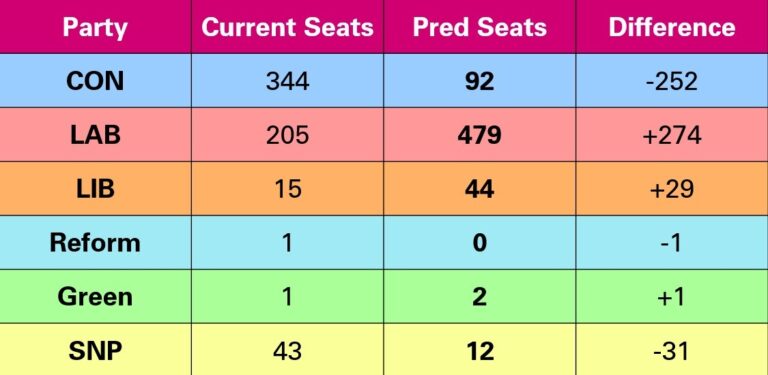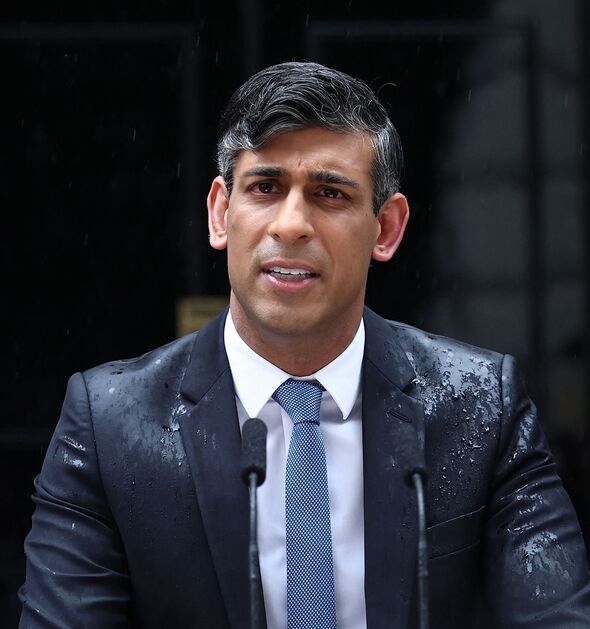Week 1
Welcome to JBP’s weekly 2024 General Election update. Each Friday, we’ll give you a rundown of the latest updates. See below for:
-
Key moments of the week
-
The latest policy positions
-
Key dates in the campaign
-
Who’s who in Labour’s back office
-
The latest gossip from Westminster
-
And our pick of the week’s news stories
A surprise announcement following months of speculation
The Prime Minister, Rishi Sunak, surprised most MPs and the country on Wednesday afternoon when he called an election for Thursday 4 July. Tory MPs were once again divided in their opinions as to whether it is a good idea to hold the election so soon, but the announcement of the fall of inflation, coupled with murmurings of economic challenges in the autumn, seemingly forced the Prime Minister’s hand.
Whilst the PM will be campaigning on his record of delivery – smartly reminding voters that it was him who prevented millions of job losses through the furlough scheme, the Labour Party is positioning itself as the party of stability, credibility and change. See below Electoral Calculus’ latest data.

Key moments of the week
-
The Prime Minister has challenged Sir Keir to one television debate every week running up to Polling Day. This would mean six debates, more than any Prime Minister has agreed to since TV debates were first introduced in 2010.
-
Nigel Farage will not stand as a Reform candidate in the election, instead indicating he will be busy assisting Donald Trump in America.
-
Former Labour leader Jeremy Corbyn will be standing as an independent candidate in Islington North, along with Diane Abbott in Hackney, creating headaches for a Labour Party struggling to reconcile its left and more moderate wings.
-
At the time of writing, 73 Conservative MPs are standing down ahead of the election, of the 116 MPs of all parties who have made a public announcement to date. In Scotland, the SNP will also see significant churn with approximately 20% of its MPs standing down.
Policy priorities
Both main parties have set out their core policy offers, but voters will find it challenging to spot the differences, suggesting the election will be fought from the ‘centre’. Whilst manifestos have yet to be published, we have a good idea of what they will be focus on in the coming weeks.
Labour’s six objectives for Government:
-
Deliver economic stability
-
Cut NHS waiting times
-
Launch a new Border Security Command
-
Set up Great British Energy
-
Crackdown on antisocial behaviour
-
Recruit 6500 new teachers
The Conservative Party’s five priorities:
-
Continue to combat inflation
-
Grow the economy
-
Reduce debt
-
Cut waiting lists
-
Stop the boats
Key dates during the campaign
-
Friday 24 May – ‘wash-up’ when the Government will try and get chosen Bills across the line. The Government has confirmed that some of its flagship Bills will be dropped, notably the Renters’ (Reform) Bill and the Tobacco and Vapes Bill, both of which were controversial.
-
Thursday 30 May 2024 – the dissolution of Parliament, when all Bills that haven’t made it to Royal Assent will be dropped.
-
About 20 days before polling day – manifestos will be launched by the major parties, usually within a few days of each other.
-
Over the next week, all parties will be selecting candidates for the large number of remaining seats. Budding candidates have been sent emails from party HQs inviting them to make an expression of interest for available seats. In effect, local associations will have candidates ‘parachuted’ into their constituencies, but the short timeframe will limit the extent that candidates can be properly vetted by each party.
-
Sometime around 6 June 2024 – closing date for selection of all parliamentary candidates.
Profile – Labour’s backroom staff
With Labour preparing for Government, this section of the newsletter will introduce the people who is shaping Labour’s policies behind the scenes.
This week, we take a look at Morgan McSweeney.
Morgan McSweeney, Labour’s Director of Campaigns, is a pivotal figure in Keir Starmer’s team, wielding significant influence with staffers and politicians alike. Often compared to Tory fixer Dougie Smith and dubbed “the new Prince of Darkness,” a nod to Tony Blair’s strategist Lord Mandelson, McSweeney’s role extends far beyond his job title.
The softly spoken Irishman has enjoyed an almost traceless rise from his beginnings in West Cork to the top of the Labour machine. He is a moderniser first and foremost, having turned the Labour Party on its head since the 2019 election – positioning it as one that is patriotic about Britain and forward looking. He has the sort of restlessness and data-driven mentality you associate with Dominic Cummings, but without the madness.
He was instrumental in Starmer’s leadership bid and previously served as his Chief of Staff, a position now held by the reliable Sue Gray. As the architect of Labour’s shift from the Corbynite left, McSweeney’s strategic acumen and control over party operations have made him a significant force in modern British politics.

The stories that don’t make the papers
We have our ears to the ground to uncover gossip from the campaign trail. The below is what we have picked up from our networks this week.
-
We understand that the Prime Minister only made the final decision to call an election at lunchtime on Wednesday, with only around eight people aware of the plans prior to is cabinet meeting.
-
Following news that Jeremy Corbyn will run as an independent in Islington North, he has been expelled by the party, ending his 58 years of membership. He is thought to be relishing a campaign that sees Starmer’s party his only real threat.
-
Conservative backbenchers were furious with the decision for an election so soon and took to WhatsApp groups to complain about the election. One Minister even brandished a letter of no confidence at the 1922 backbench committee meeting.
Press and media releases
Here is a snapshot of the articles the JBP team have found interesting this week.
-
The Economist – Build a voter [paywall]. The Economist’s tool to create a ‘voter profile’ and see who they’re likely to vote for.
-
The Guardian – Why did Rishi Sunak go to the country now? Interesting takes from people around the country about Sunak’s decision for an election.
-
The Spectator – Has Sunak’s Farage Gamble Just Paid Off [paywall]. How Sunak is attempting to ease a potential Tory loss at the election.
-
The New Statesman – The Biggest Risk Facing Labour [paywall]. Conservatives’ frustration and scepticism surrounding his leadership.

About Us
BP is a national communications consultancy specialising in communications and political engagement. Our team consists of experienced consultants and well-connected political advisors – our campaigns are always guided by quality political insight into your priorities and how they translate to the current political and regulatory environment.
Please get in touch at any time with us at publicaffairs@jbp.co.uk to discuss your communications needs.
